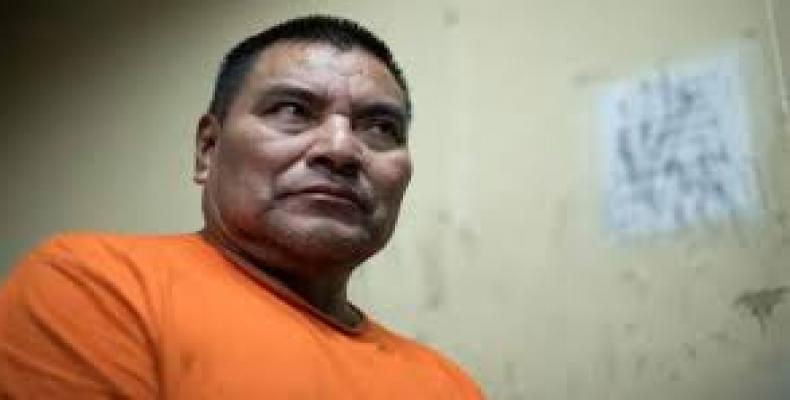Guatemala City, November 23 (RHC)-- A Guatemalan court sentenced a retired military officer Santos Lopez Alfonso to 5,130 years in prison for participating in the massacre of almost 200 people in the community of Las Dos Erres, 36 years ago.
The prosecution sought charges for 201 assassinations, however, the Court only recognized 171 victims giving him a sentence of 30 years for each person he murdered.
According to the ruling, Santos Lopez was a member of the Kaibiles, the elite group of the Guatemalan Army tasked with intelligence and special operations. The group "guarded" the community of Las Dos Erres in the first days of December 1982, within the framework of the 36-year-long Guatemalan civil war.
The massacre was perpetrated between December 6 - 8, 1982, during the government of dictator Efrain Rios Montt. The military group raped women, murdered children, men and the elderly. In 1994, a group of anthropologists exhumed the remains of at least 162 people, among them 67 boys and girls under 12 years of age.
In spite of the sentence issued by the Court, the convicted person will only serve 50 years in prison, which is the maximum time allowed by law in Guatemala. The defendant has pleaded innocently on several occasions for the charges against him.
Guatemala's civil war began in 1960, six years after the United States-backed military coup that ousted democratically-elected military officer Jacobo Arbenz, who led a popular program of agrarian reform that affected landed elites and the infamous United Fruit Company. Shortly after the coup, left-wing parties and labor unions were outlawed by the state and progressive social and economic policies were dismantled.
By December 1962, a group of military men and former left-wing politicians and organizers formed the Rebel Armed Forces. Indigenous people and campesinos across the country joined the revolutionary movement, becoming targets of subsequent military governments.
Towards the late 1970s and early 1980s, tens of thousands of Guatemalan Indigenous peoples and campesinos were forced by the army to abandon their lands and go to "model towns" that were under strict military supervision. The Guatemalan army built 45 "model towns" with the help of U.S.-based Evangelical Christian groups in order to prevent Indigenous peoples and campesinos from joining the guerrilla.
Retired Guatemalan military officer sentenced for 1982 massacre

Related Articles
Commentaries
MAKE A COMMENT
All fields requiredMore Views
- Adidas president highlights reunion with Cuba
- Cuba and Mongolia exchange on biotechnology in agriculture
- Founder of sport parachuting in Cuba passes away
- Vegueros de Pinar remains at the top of the National Baseball Series
- UNICEF says over 14,000 children killed in Israel’s genocidal war of aggression against Gaza

